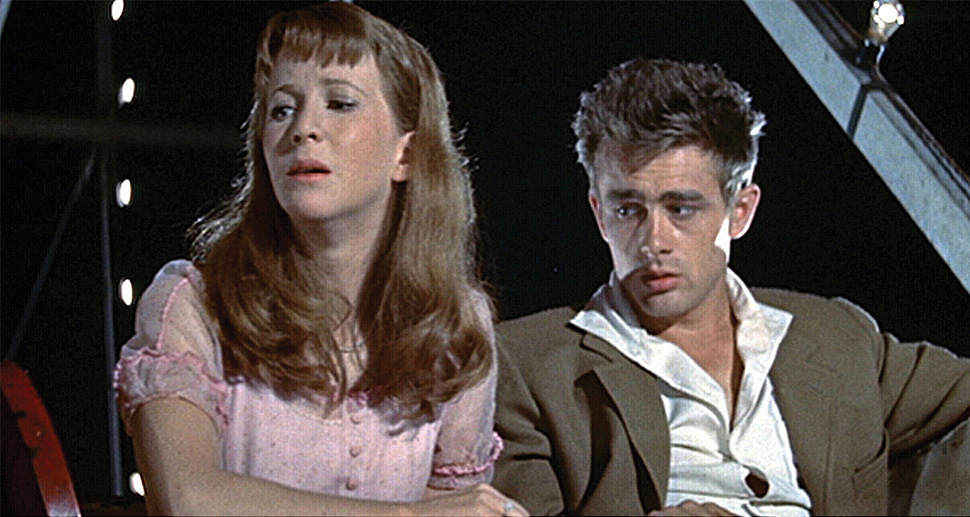by Jack Tucker, ACE
I grew up at the movies. I lived in a neighborhood where most of the children were younger than I was, and therefore I had few friends my own age. I spent my time reading and going to the movies. These pursuits were my companions. At that time, admission for a kid was 25 to 60 cents, and we had double and sometimes even triple features. One week, I saw 11 films. Movies were my life.
I came from a broken home, raised by my mother — who worked very hard to put food on the table — and my grandmother. I have no concept of what a father is. Because my mother was always working, I felt alienated from her and unloved.
It never occurred to me to be in the filmmaking business until I saw Elia Kazan’s East of Eden. As a 16-year-old boy who himself felt unloved, I was transformed by the film. I took a girl with me in hopes of “making out.” Once the film started, I totally forgot about her.
As James Dean wandered the streets of 1917 Monterey following the mother he has never known, I was mesmerized. When Dean climbed up on the boxcar (in that magnificent CinemaScope photography) to hitch a ride from Monterey to Salinas, and sat shivering on it, he touched me to my very soul. His alienation was complete. This was the epiphany that set me on the course of making films. He was my mentor.
I tracked down everything I could find on Dean, including Rebel Without a Cause (1955) and Giant (1956), the film he had finished just before he was killed while driving his sports car to a race in Salinas. There would be no more of his films, but I was inspired.
I worked at odd jobs and earned enough money to buy a cheap 8mm projector and, eventually, an 8mm camera. I began making little silent films, usually monster movies. I managed to buy an old Bell & Howell 16mm projector and rented feature films that I ran in my basement, which I converted into a theatre for the neighborhood kids.
In college, I was an English major and made money working as a projectionist in the audio-visual department. In my work, I was exposed to such films as Vittorio De Sica’s Bicycle Thieves and Laurence Olivier’s Hamlet (both 1948). The drama of these films touched me deeply. I spent more time with these films than with my studies and eventually flunked out.
To avoid being drafted, I joined the Air Force. I was originally in Intelligence and was sent to the spy school in Monterey. Once again, I sacrificed study for movies. Richard Burton was my downfall when he did Hamlet on Broadway, and it was filmed and shown for one night only across the country.
I was read the “riot act” for not studying, but the Air Force liaison asked me what I wanted to do. I told him film, and he handed me a book listing all Air Force jobs and their descriptions. I was amazed to find several film jobs. It was between cameraman and film editor, but though the former seemed exciting, editing seemed to be the heart of the process.
I was fortunate to get into the filmmaking unit hidden in Laurel Canyon in the Hollywood Hills.
There were many old-time retired industry editors working for the Air Force through civil service, and they taught me the essentials of the craft. These men had 450 years experience amongst them and said, “We may not know everything about editing, but we did invent it.”
Nearly 50 years after Dean died, I got the chance to reunite with him. My friend, Michael Sheridan, ACE, was producing and directing a documentary called James Dean: Forever Young (2005) and asked me to join him as co-supervising editor on the project. I wound up going to Dean’s home in Indiana, meeting his family and learning much more about my mentor.
Over the years, I have met many people who were inspired by East of Eden and James Dean.
Martin Sheen was eager to narrate Sheridan’s film and we knew the Beatles were fans. We wanted to use Paul McCartney’s “Mull of Kintyre.” I sent him a clip of how we wanted to use it in the film and he replied, “What can you pay?” We got the song.
The real benefit of the craft we serve is when someone we’ve never met sits in a theatre and is touched by something we’ve put on film. We either make them laugh or cry or just be inspired. East of Eden did that to me long after Dean’s death. That gives us a kind of immortality, and that’s why we do what we do. f


